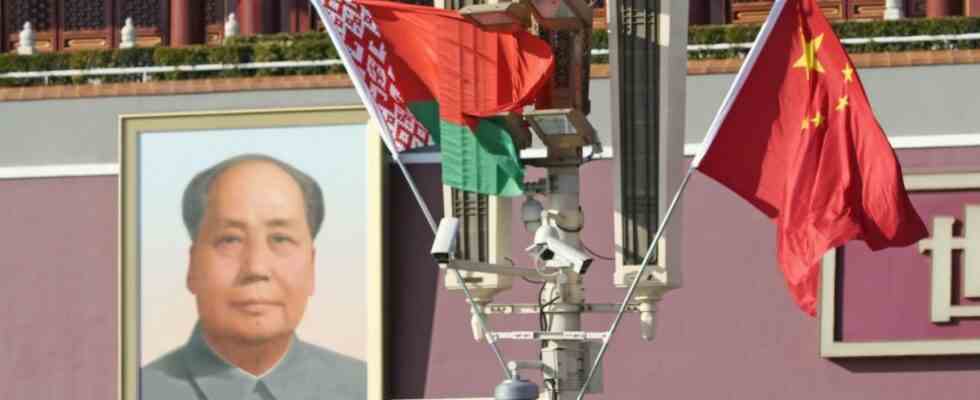Belarusian ruler Alexander Lukashenko enthused a few days ago in an interview with the state news agency Xinhua that he has only the warmest and friendliest memories of his first visit to China. During his trip two decades ago, it was already clear to him that the People’s Republic would experience significant growth over the next two decades. He is happy that he can now travel to his “old friend President Xi Jinping” again, “a clever, wise, creative and modern person”.
The Belarusian president is said to have been in Beijing since Tuesday for a three-day state visit, but his arrival in the Chinese capital had not yet been confirmed at the time of going to press on Tuesday evening.
For Alexander Lukashenko, the visit means one thing above all: an opportunity to show that Belarus is not completely isolated internationally and is more than an appendage of Russia. European heads of government have not recognized him as a legitimate head of state since the mass protests in 2020 and consider the presidential election at that time to be fraudulent. Since Lukashenko bloodily crushed the protests after the vote, he has been even more dependent on Moscow’s help than before. And since the beginning of the war, most Western countries have viewed him as part of the Russian threat. Lukashenko is now hosting soldiers from Russia and at the same time assures that Minsk will not send troops to Ukraine.
Nobody will stop China from becoming a world power
The invitation from Chinese head of state and party leader Xi Jinping can also be understood as a signal to Putin: Lukashenko has always tried to create options outside of Russia. He hopes Beijing will expand trade relations and hopes for Chinese investments in Belarus, which he urgently needs not only since the European sanctions from 2020. In September, both heads of state announced a “comprehensive all-weather strategic partnership” at a meeting in the Uzbek city of Samarkand. Shortly before the planned trip, Chinese state media said relations were at their “highest level in history”.
After Beijing presented a position paper “on the political solution to the Ukraine crisis” last week, the talks will very likely also be about Ukraine. In the Xinhua interview, Lukashenko praised the paper: “We’re glad that China is finally starting to play a crucial role in our world,” he says, and that nobody will stop China from becoming a world power. Beijing repeatedly accuses the United States of wanting to prevent the country’s rise.
Moscow reacted much more cautiously to the Chinese proposal. Kremlin spokesman Dmitry Peskov told Russian journalists on Monday that the “plan of our Chinese friends is being viewed with great attention.” However, the details must be carefully analyzed, this is a “very long, intensive process”. In an interview with the newspaper Izvestia Peskov later added that China’s interests could not be ignored by any actor on the international stage. But in Ukraine there are currently no prerequisites for discussing “a peaceful solution to the problem”. The “special operation” will therefore continue “until the goal is reached”.
Above all, Moscow is likely to react rather coolly to one of the twelve points in China’s plan. China emphasizes that the “sovereignty, independence and territorial integrity of all countries” must be maintained. Beijing may have been thinking primarily of the island state of Taiwan, to which the Communist Party lays claim. However, the Kremlin must also understand this as a request to recognize Ukraine’s borders. That is why the Russian Foreign Ministry emphasizes in its statement on the 12-point plan that there can be no peaceful solution in Ukraine as long as Kiev demands the return of the annexed regions of Cherson, Zaporizhia, Luhansk and Donetsk – which the text describes as “our new called “regions”.
The Kremlin was no doubt pleased about other points in the plan, such as the condemnation of Western sanctions or Beijing’s demand that the “legitimate security interests of all countries” be taken seriously. This is a phrase China uses to support Russia’s argument that it must defend itself against the US and NATO.
For Putin, the proposal from Beijing means above all that it will attract attention from China. He can use them, for example, when it comes to finally reaching agreement on the Kraft Siberian 2 gas pipeline project or on arms deliveries and technology imports. A visit by the Chinese head of state to Moscow is also on Putin’s wish list, as a signal that Russia has powerful allies in the world. It’s debatable whether Lukashenko’s visit to Beijing will help or, in Putin’s view, be a bother.

